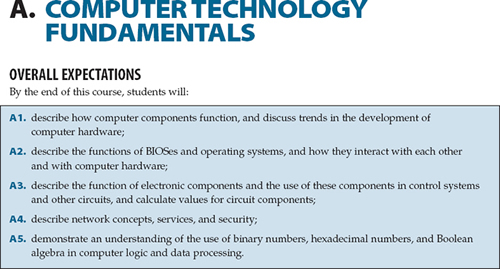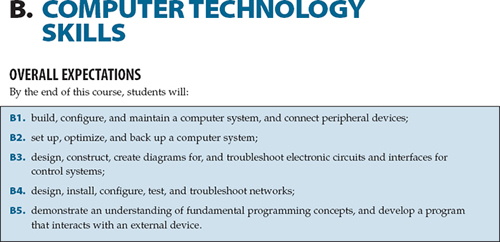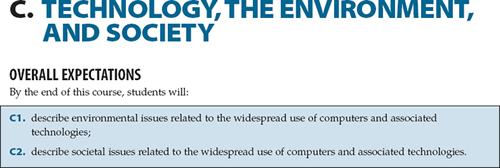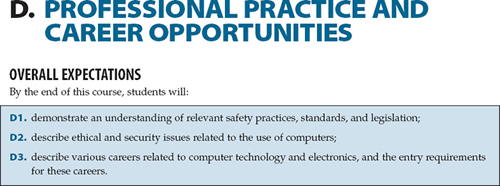   |
|
|
|
|
|
|
10. The Mandelbrot Set
| CLASS | REFERENCE | CONCEPTS | PROJECT | SUPPLEMENTARY |
|---|---|---|---|---|
| 75 May 27 |
Final Class: Exam Archive Feedback on the value of the Skype Sessions The Mandelbrot Set: Optional Enhancement (Palette) |
27 (Bonus) | ||
| 74 May 23 |
 |
The Mandelbrot Set: Work Period | 26 |
Justin Ho Turner |
| 73 May 21 |
The Mandelbrot Set: Task Support: Mapping Spaces ASCIIMathML: Syntax and List of Constants |
26 |
||
| 72 May 16 |
The Orbits of `z larr z^2+c`, `z,c in CC` (Shortened) Work Period |
25 |
 |
|
| 71 May 14 |
Tidy up last night's Mouse-Aware Project The Orbits of `z larr z^2+c`, `z,c in CC` |
25 |
||
| 70 May 12 |
Try it yourself | Mouse Position,
A Mouse-Aware Canvas |
24 |
|
| 69 May 8 |
`z=a+bi` | Complex Object Work Period | 23 |
|
| 68 May 6 |
Studies p.4-5: Complex Numbers |
Introduction to Fractal Geometry: The Mandelbrot Set Online Encyclopedia, The Mandelbrot Monk ACES' Fractal Archive, Studies (pp. 4-5) |
23 Complex |
9. Parametric and Polar Equations
| CLASS | REFERENCE | CONCEPTS | PROJECT | SUPPLEMENTARY |
|---|---|---|---|---|
| 67 May 2 |
 |
Parametric Equations: Work Period Beyond Parametric Equations: Polar Equations |
22 | |
| 66 Apr 30 |
 |
The RegExp (Regular Expression) Object replaceAll(): replace with RegExp: Try it yourself Parametric Equations: eval(), replaceAll() Parametric Equations: View Task |
22 | |
| 65 Apr 28 |
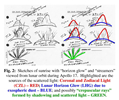 |
The Planetary Society: LADEE sees Zodiacal Light |
22 | Dr. Chris Roscoe Applied Defense Solutions Peter |
| 64 Apr 24 |
 |
Merge Sort: Review, Redo, and Repair Session Parametric Equations: Model Task |
22 | |
| 63 Apr 22 |
Beyond `f(x)`: Parametric Equations Dynamic population of select control Non-Standard JS: Associative Arrays Parametric Equations: Controller Task |
22 |  |
8. Algorithms I: Search and Sort Algorithms
| CLASS | REFERENCE | CONCEPTS | PROJECT | SUPPLEMENTARY |
|---|---|---|---|---|
| 62 Apr 16 |
 |
Sort Algorithms 2: O(n log n) : Merge Sort MergeSort WorkSheet: Work Period |
21 | Chris Black Greg |
| 61 Apr 14 |
 |
Sort Algorithms 2: O(n log n) :
Merge Sort MergeSortIndices.html |
21 |  |
| 60 Apr 10 |
 |
Sort Algorithms 1: O(n²) Selection Sort and Insertion Sort (applet with pseudocode) |
20 | Dr. Robert McCann Anthony |
| 59 Apr 8 |
 |
Sort Algorithms 1: O(n²) Selection Sort and Insertion Sort (applet with pseudocode) |
20 | |
| BC OUTDOOR EDUCATION TRIP | ||||
| 58 Mar 31 |
 |
Animated Gifs: Canvas Capture and Creation Preparations for Sort Algorithms: Randomizing an Array |
Exercise |  |
| 57 Mar 27 |
 |
Familiar MVC Example In-Class Case Study: Model-View-Controller |
Exercise |  |
| 56 Mar 25 |
 |
In-Class Case Study: Model-View-Controller | Exercise | |
| MARCH BREAK | ||||
| 55 Mar 6 |
 |
Sort Algorithms 1: O(n²) Selection Sort and Insertion Sort (applet with pseudocode) |
20 | |
| 54 Mar 4 |
 |
(Mr. D. Absent) Anthony, Eric, Robbie, and Roger: Game of Life SRP Hardware ACES: Memory Game PCB |
20 |  |
| 53 Feb 28 |
 |
Complete In-Class Case Study: Recursive Binary Exercises Thoughts on Binary Trees, Application: Root Finding Search Algorithms: Binary Search |
19 |  |
| 52 Feb 26 |
 |
In-Class Case Study: Recursive Binary Exercises |
19 |  |
| 51 Feb 24 |
Review of the Linear Search Algorithm Assignment In-Class Case Study: Recursive Binary Exercises |
19 |  |
|
| 50 Feb 20 |
Mr. D. Fishbein Stevie |
Software: SRP Work Period 2 (ED, RF, AL) Hardware: PCB Fabrication Work Period |
||
| 49 Feb 18 |
Software: SRP Work Period 1 (ED, RF, AL) Hardware: PCB Fabrication Work Period |
|||
| 48 Feb 12 |
 |
BoM: Alternate Interface Design Possibilities Search Algorithms: Linear (Sequential): Work Period |
18 |  |
| 47 Feb 10 |
 |
Review: PascalsTriangleOnCanvas, Test, Saving the Canvas to DataURL Search Algorithms: Linear (Sequential) Performance of Algorithms: Big O Notation |
18 | Introduction to Animation |
7. Recursion
| CLASS | REFERENCE | CONCEPTS | PROJECT | SUPPLEMENTARY |
|---|---|---|---|---|
| 46 Feb 6 |
Test: Recursion Question (Full Period) |
18 | ||
| 45 Feb 4 |
Work Period: Pascals' Triangle on Canvas |
17 | ||
| 44 Jan 31 |
Mr. John Sladek Mariano |
In Class Assignment:
Exercise 1 and 2 of Pascals' Triangle on Canvas |
17 |  Other works |
| 43 Jan 29 |
 |
Review: Recursive Exercises In Class Assignment: Pascal's Triangle On Console |
17 | |
| 42 Jan 27 |
Mr. Geoff Osborne Thomas |
Binomial Theorem `(a+b)^n = \sum_{r=0}^{n}((n),(r))a^{n-r}b^r, " where " r,n in W` |
17 | |
| 41 Jan 23 |
Mr. Randar Puust Robbie |
Order of Complexity: Big O Notation ACES' JavaScript Sequence: Introduction to Recursion: Improved Power, Base Conversion |
16 | Robbie's Notes Randar's Notes, PPX |
| 40 Jan 21 |
ACES' JavaScript Sequence: Introduction to Recursion GCD, Palindrome |
16 | Trial: `sqrt(xy)=sqrt(x)*sqrt(y)` |
|
| 39 Jan 17 |
Mr. D. Absent | In-Class Assignment: Factorial Exercises |
16 |  |
| 38 Jan 15 |
Mr. D. Absent | In-Class Assignment: Factorial Exercises | 16 | |
| 37 Jan 13 |
A Builder's High ACES' JavaScript Sequence: Introduction to Recursion |
16 | ||
| 36 Jan 9 |
Canvas Tutorial Geary on Canvas |
ACES' JavaScript Sequence: Introduction to Recursion | ||
| 35 Jan 7 |
Skype Sessions: January CES' JavaScript Sequence: The Console |
6. Object-Oriented JavaScript
| CLASS | REFERENCE | CONCEPTS | PROJECT | SUPPLEMENTARY |
|---|---|---|---|---|
| 34 Dec 17 |
ACES' JavaScript Sequence: Mouse Event-Handling |
15 | ||
| 33 Dec 13 |
Array Tutorial |
ACES' JavaScript Sequence: The Array Object | 15 | Array Reference |
| 32 Dec 11 |
ACES' JavaScript Sequence: Canvas: Pixel Play |
15 | ||
| 31 Dec 9 |
console.log() Math.random() |
ACES' JavaScript Sequence: Canvas: Pixel Play BoMShell |
15 | |
| 30 Dec 5 |
|
ACES' JavaScript Sequence: Canvas Preview | 14 | |
| 29 Dec 3 |
ACES' JavaScript Sequence: Canvas Preview |
14 | ||
| 28 Nov 29 |
ACES' JavaScript Sequence: Canvas Preview |
13 | ||
| 27 Nov 27 |
Canvas |
ACES' JavaScript Sequence: Canvas Preview |
13 | JS Syntax Highlighting |
| 26 Nov 25 |
JavaScript (Open Everything) Object Test | 13 | ||
| 25 Nov 21 |
.toFixed(n) .toPrecision(n) |
ACES' JavaScript Sequence: Constructed vs Literal Objects |
12 | |
| 24 Nov 19 |
Objects | ACES' JavaScript Sequence: Objects | 12 | |
| 23 Nov 13 |
Values, Variables |
Project Euler Registration Doug Crockford (JS guru): JavaScript Coding Conventions Template: BoMShell, Finite Arithmetic Sequence |
11 | ASCIIMathML.js |
5. Introduction to the BOM, DOM, and JavaScript
| CLASS | REFERENCE | CONCEPTS | PROJECT | BITS |
|---|---|---|---|---|
| 22 Nov 7 |
JavaScript (Open Everything) Test (incl. HTML, CSS, Images, Tables, Forms, Animation, etc.) |
|||
| 21 Nov 5 |
Animation Work Period | 10 | ||
| 20 Nov 1 |
ACES' JavaScript Sequence: Animation |
10 | ||
| 19 Oct 30 |
Facebook Login Work Period Review: JavaScript Variables |
9 |  |
|
| 18 Oct 28 |
Randomizer: alert(...) ACES' JavaScript Sequence: HTML Forms |
9 |  |
|
| 17 Oct 24 |
 |
Quiz 2. Images (HTML and CSS as required) ACES' JavaScript Sequence: HTML Tables Case Study: Randomizer Tutorial on Page & Script Debugging in Chrome (ca. 2011) |
8 | The Future of JavaScript Crockford: The Good Parts |
| 16 Oct 22 |
 |
HTML DOM, DOM Cheat Sheet ACES' JavaScript Sequence: The HTML DOM |
8 |  |
| 15 Oct 18 |
ACES' JavaScript Sequence: Browsers & The BOM Complete In-Class Exercise and post |
7 | ||
| 14 Oct 16 |
Microsoft DN: BOM |
Course Recap: Home Pages, HTML/CSS JavaScript: The World's Most Misunderstood Language Why JavaScript?, What is JavaScript? ECMA Standard: ECMA-262 ACES' JavaScript Sequence: Browsers & The BOM |
7 |  |
4. Visual Elements and Graphics
| CLASS | REFERENCE | CONCEPTS | PROJECT | SUPPLEMENTARY |
|---|---|---|---|---|
| 13 Oct 11 |
SVG, MathML Case Study Update (see ICS3U Conference) |
5, 6 | ||
| 12 Oct 9 |
Visual Elements, Background Images Image Maps, Favicon, Sources and Guidelines |
5 | ||
| 11 Oct 7 |
Gif, JPG, PNG, Images Elements, Image Hyperlinks |
5 | CSS3: Querying the Media (p. 104) Responsive Web Design (p.349) |
|
| 10 Oct 3 |
Chapter 3 Test Chapter 4. Horizontal Rule, Borders and Padding |
4, 5 |
3. CSS3
| CLASS | REFERENCE | CONCEPTS | PROJECT | SUPPLEMENTARY |
|---|---|---|---|---|
| 9 Oct 1 |
99-109 | Chapter 1 Online Quiz: 10 Questions Javascript/HTML Beautifier Center HTML Elements with CSS, The Cascade Full CSS Property Inheritance Table Hands-On Practice 3.8 (remount) CSS Validation |
4, 5 | |
| 8 Sep 26 |
88-103 | Configuring Text: font-family, font-size, font-weight, etc. class, id, and contextual Selectors External Style Sheets Hands-On Practice 3.3, 3.4, 3.5, 3.7 (remount) |
4, 5 | |
| 7 Sep 24 |
Coffee Shop servers: average > good > great Can I use...?, CSS Reference Inline Style Example Embedded Style Example (View Frame/Page Source) Web-Safe Colours: HEX, names Hands-On Practice 3.2 (F/C Conference) |
4 | Veteran off-grid ZEN GARDEN W3C Style Home Webkit? |
2. HTML Basics
| CLASS | REFERENCE | CONCEPTS | PROJECT | SUPPLEMENTARY |
|---|---|---|---|---|
| 6 Sep 20 |
43-55 | Sections 2.14 - 2.18: Description Lists, Special Characters (Entities) Divs, Anchors, Validation Assigned Case Study |
2, 3 | Where we are: The Logistic Function |
| 5 Sep 18 |
28-43 | Internet Q&A: Ask the Expert Guest |
2 | RSGC: Primary Goal UTF-8, UTF-16 Document Template |
1. The Internet and the World Wide Web
| CLASS | REFERENCE | CONCEPTS | PROJECT | SUPPLEMENTARY |
|---|---|---|---|---|
| 4 Sep 16 |
Presentations 9-13 | 1 | ||
| 3 Sep 12 |
Presentations 5-8 Warriors of the Net: The Movie |
1 | ||
| 2 Sep 10 |
Presentations 1-4 | 1 | ||
| 1 Sep 6 |
RSGC Strategic Plan: Primary Goal The Internet and the Web, Web Standards and Accessibility |
1 | SSD Sketch | |
| 0 Sep 4 |
Student Outline Mr. D's Schedule |
REPUTATION and RESPECT ACES Hall of Fame, ACES Consent Form |
[ACES Culture] |
